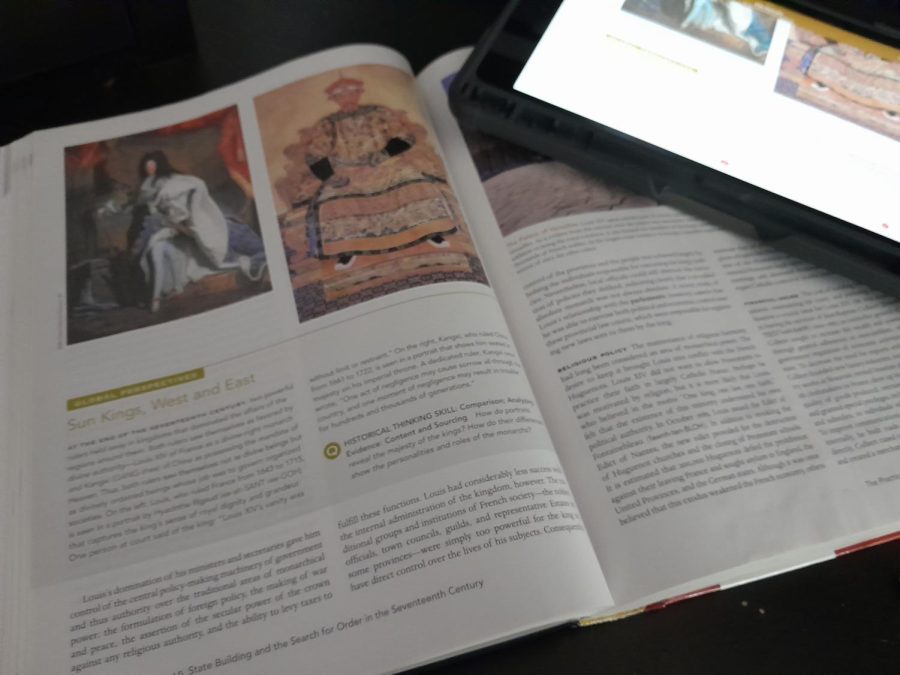Textbooks in the digital age
Photo by Ayaan Hamid
At LZHS, students have access to digital and physical textbooks. Courses that use textbooks include math, science, history, etc.
Almost every course at LZHS comes with a textbook, and with this school year coming to a close, students are expected to turn in their books so that they can be reused for next year. However, with more ways to access course content once only found in physical copies, the role of textbooks is starting to come into question.
“Frankly, I don’t think all the textbooks are necessary,” Jessica Eng, freshman, said. “My biology class only used our textbooks a few times early in the year, and even then we had a digital copy that was easily accessible. While [textbooks] can be provided as a supplement, I’m not sure it is totally necessary for education. I don’t know a lot of people who actually read them out of choice.”
For Eng, she has “never really needed to use textbooks at all,” a view shared by 40.4% of students who took an April Bear Facts Student Media Survey.
“I think I’ve cracked open my math textbook maybe twice this year, and both times I was just skimming it, not really looking for answers,” Eng said. “It seems like most people get the help they need from either their teacher, the [math resource center], or the notes and videos their teachers post on Canvas.”
Physical textbooks are also “inconvenient” according to Lily Henry, junior, who prefers to alternatively use digital textbooks accessible through school iPads and other electronic devices.
“I haven’t had much experience using digital textbooks but when I do they are a lot easier to use,” Henry said. “It’s easier to find pages and I don’t have to carry around a large textbook.”
While many points can be made against physical textbooks, there are still arguments to be made for them, with 59.6% of students who took the April survey believing that physical textbooks can be useful.
“I don’t think they are completely useless,” Henry said. “They would be used when someone doesn’t have access to technology.”
Despite this, some students, like Eng, still opt for using digital forms of textbooks instead of physical versions.
“All things considered, I prefer digital textbooks,” Eng said. “As a person with scoliosis, I can confirm that it does hurt my back to carry physical [textbooks]. You could also argue that digital textbooks are more environmentally friendly since they require less, if any, paper.”

This is Ayaan’s final year at LZHS, and his third and final year at Bear Facts; not only as a senior, but also as News Editor of Bear Facts Student Media....

